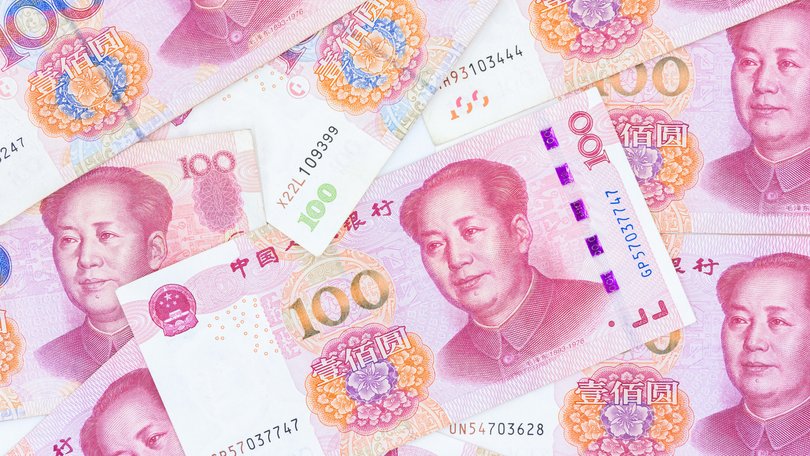THE ECONOMIST: At last, China pulls the trigger on a bold stimulus package

Two gut instincts have distinguished the macroeconomic policies of Xi Jinping, China’s ruler since 2012. He has disdained consumer handouts, which he thinks breed laziness. And he has refrained from bold economic stimulus, the kind of fiscal and monetary “bazooka” that China’s previous leaders fired in November 2008 during the global financial crisis.
Both of Mr Xi’s convictions have been tested by China’s economic woes over the past year. And this week, shortly before the 75th anniversary of the People’s Republic of China, he appears to have set his qualms aside, permitting China’s most attention-grabbing stimulus since 2008. Chinese stocks posted their best week in 16 years; Hong Kong’s surged at a pace unseen since 1998. Some analysts have even used the b-word.
On September 24 the People’s Bank of China (PBoC), the country’s central bank, cut interest rates, lowered banks’ reserve requirements and took steps to reduce the cost of existing mortgages. That would save 50 million households about 150 billion yuan ($30b) a year, it said. Further easing of reserve requirements was possible this year, added Pan Gongsheng, the central bank’s governor.
Sign up to The Nightly's newsletters.
Get the first look at the digital newspaper, curated daily stories and breaking headlines delivered to your inbox.
By continuing you agree to our Terms and Privacy Policy.More surprising were two new tools to boost the stock market. The central bank will help firms buy back their own shares by refinancing bank loans used for that purpose. And it will help securities companies, insurers and other institutional investors raise funds by making their balance-sheets more robust. They will be able to borrow safe, liquid assets like government bonds from the PBoC, using their riskier, less liquid assets, such as stocks, as collateral. The combined size of these tools was 800b yuan, Mr Pan said, although he could double or triple that limit if need be. “It is all possible,” he concluded.
Two days later the Politburo of China’s ruling Communist Party devoted its September meeting to the economy, a break with its traditional political calendar no doubt motivated by deteriorating economic circumstances. It spoke of “new situations and problems”, where in July it had spoken of “new momentum and new advantages”. It resolved for the first time to try and arrest the property market’s fall. And it promised to make countercyclical policies more potent.
What specifically does the central government have in mind? According to Reuters, a news agency, it will issue an additional 2trn yuan of bonds, an amount equivalent to roughly 1.5 per cent of China’s GDP. As important as the amount of money raised are the ways it will be spent. Half of it will help defuse the risk that local governments go bust. The other half will encourage spending by households and firms.
Some of this second trillion will be ploughed into the government’s existing “cash for clunkers” scheme, which encourages firms and households to trade in old equipment, cars and appliances for newer, greener gear, from electric vehicles to “smart toilets”. The rest will help finance a monthly handout to expanding families: about 800 yuan per child, excluding the first. According to the 2020 census, 114 million children could benefit. In the past China’s government has frowned on handouts because they can breed indolence. Now it hopes they will help people breed.
These easing measures, even if confirmed, still fall short of the 2008 bazooka. That crisis-era package, often labelled the “4trn yuan” stimulus, ultimately amounted to 9.5trn yuan (or 27 per cent of 2009 GDP) spread over 27 months, according to Christine Wong of the University of Melbourne. And some of the central government’s extra borrowing this year will merely offset fiscal tightening by cash-strapped local governments.
But even with these caveats, China’s stimulus this week comfortably exceeded expectations. It also sent a powerful signal. In a video conference on September 26, the central bank’s leaders told branch officers to “go all out” in implementing the Politburo’s vision. Other officials may be getting a similar message. “As saving the economy and rescuing markets … become politically correct, we believe officials are likely to jump on the bandwagon to display their loyalty,” wrote Ting Lu of Nomura, a bank.
Many equity investors have already taken the leap. China’s stock market has risen by more than 15 per cent this week. The policy signals in Beijing have even impressed some investors in America. “This is incredible stuff for that place,” said David Tepper of Appaloosa Management, a hedge fund, in an interview with CNBC, an American TV channel. Asked what he would buy, he replied, “Everything. Every. Thing.”
Signals can be important. The word “bazooka” did not always refer to a shoulder-mounted weapon. It originally referred to a strange kind of wind instrument. The measures announced and leaked to the media this week are not as powerful as the 2008 stimulus. But as a clarion call to stockmarket investors, they have been just as successful.
